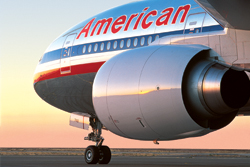The recent shift by American Airlines to prioritise New Distribution Capability (NDC) channels has significantly affected service levels within the travel industry. This move has elicited varying responses from industry leaders, highlighting both potential benefits and challenges.
American Airlines’ decision to withdraw a substantial portion of its fares from Global Distribution Systems (GDS) to focus on NDC channels marks a considerable shift. This transition is intended to facilitate more personalised and agile services, reflecting a broader industry trend towards digital transformation.
The adoption of NDC is seen as a double-edged sword. While it promises greater efficiency and tailored services, the immediate impact has been disruptive, affecting travel management companies (TMCs) and corporate clients accustomed to traditional systems.
There is a pressing need for collaboration between airlines and travel firms to manage the NDC transition effectively. Companies must align their goals with customer needs to ensure seamless service delivery.
The duty of care to travellers remains paramount. Without cohesive strategies and standardised processes, customers could face disruptions, leading to potential legal liabilities for companies.
James Diaz from Travel Planet suggests that smaller TMCs can leverage the shift to NDC to their advantage, advocating for innovation and technological integration.
Diaz points out that developing NDC connections need not be prohibitively expensive, suggesting that adaptability and investment in tech development are crucial for future success.
Legacy TMCs, however, face greater challenges in transitioning from established systems, which often involve significant costs and operational restructuring.
Clive Wratten from the Business Travel Association advocates for industry-wide collaboration to overcome challenges posed by NDC.
Experts suggest that while the transition phase may be turbulent, the long-term benefits of more flexible and customised services could redefine industry standards.
A consensus is forming around the need for a unified approach that incorporates diverse industry perspectives, ensuring the successful integration of NDC across platforms.
Travel firms are urged to adopt a proactive stance. By engaging with technological advancements and building strategic partnerships, they can navigate the complexities of the NDC transition.
The evolving landscape necessitates a blend of innovation, collaboration, and investment in infrastructure to stay competitive. Firms must remain agile to adapt to ongoing changes in distribution capabilities.
American Airlines’ transition to NDC channels presents both challenges and opportunities for the travel industry. As companies navigate this changing environment, collaboration and innovation will be essential to ensure positive outcomes for all stakeholders.

